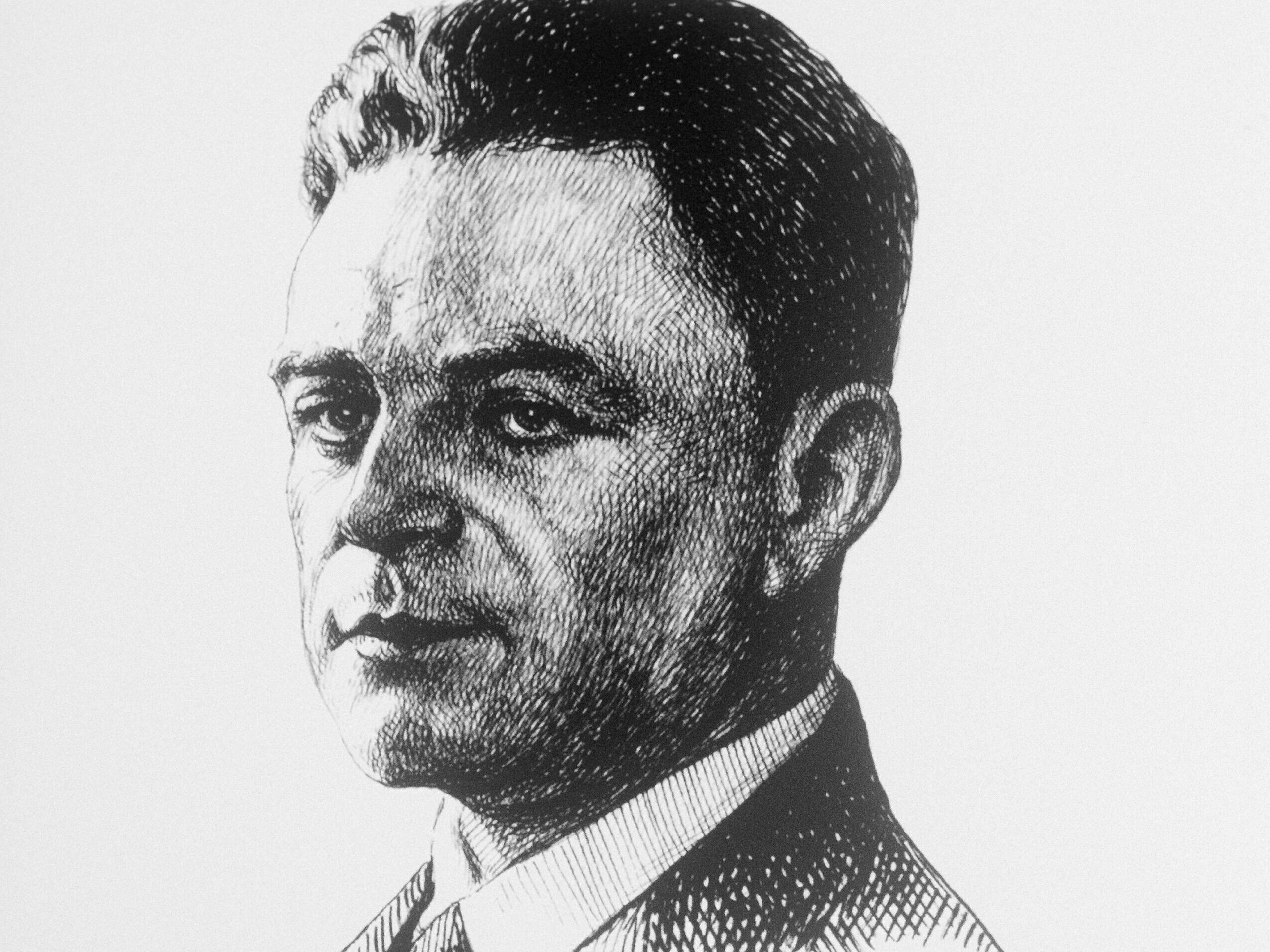The Pole who discovered vitamins. Kazimierz Funk and the mystery of a grain of rice

In Poland, he only finished high school. To continue his education, he went to Switzerland, worked in France and Germany, and died in the United States. Thanks to him, the world got to know the word vitamin. Because it was Kazimierz Funk who discovered and named the first of them.
The existence and role of vitamins for health seems obvious today. But before Kazimierz Funk made his discovery, it was a mystery what causes diseases associated with their deficiency. The breakthrough came with the work of a Pole who decided to take a closer look at … rice. More than a century ago, scientists knew one thing: there are diseases related to food. It was believed that life needed – then known – carbohydrates, proteins, fats, salts, water and … “something else”. Only no one knew what that “something else” was. Funk found the answer.
Kazimierz Funk and his way to the discovery of the first vitamin
Kazimierz Funk was born in Warsaw in February 1884. As an interesting fact, half a year after little Kazik, Edward Loth, later a well-known Polish anthropologist, and Ludwik Hirszfeld, a physician, bacteriologist and immunologist, the creator of the Polish school of immunology, seroanthropology and the basics of blood group science, were born in the same city, as was Funk nominated for the Nobel Prize for his numerous scientific achievements. However, unlike Loth and Hirszfeld, Funk did not tie his future to Poland, although he never forgot about it, and in the interwar period he even returned to it for several years.
In 1900, Funk went to Switzerland to continue his education. First he studied biology in Geneva and then chemistry in Bern. At the age of twenty, he was already a doctor (the wire was conducted by Stanisław Kostanecki, a researcher of plant dyes). Funk did not stay in Switzerland, however. He left for Paris, where he found a job and continued his research at the Pasteur Institute.
Then there was Berlin and the university there. However, he gained fame thanks to the research he conducted in London. It was there that he addressed the causes of beriberi, and this led to a discovery that changed later medicine and issues related to the approach to nutrition.
Beriberi is a disease of the nervous system caused by vitamin B1 deficiency. Beriberi was a huge problem in tropical countries. It was quickly noticed that the inhabitants of large cities and port towns, where purified rice was the basis of nutrition, suffered from it. The first studies and experiments confirmed that there is something in paddy rice that makes people not get beriberi, but it was nothing that was known and was able to isolate.
The breakthrough came thanks to Kazimierz Funk. The London laboratory in 1910 was visited by military physician William L. Braddon, who dealt with tropical diseases. He said beriberi could be caused by a deficiency in an amino acid in rice. Funk was tasked by his superior to find this amino acid. The Pole quickly came to the conclusion that it was not about any amino acid, and in 1911 he isolated a substance from rice bran, which he called a vitamin.
The dispute over the name vitamin and Funk’s groundbreaking article
Kazimierz Funk officially used the name “vitamin” for the first time in an article published in June 1912 in The Journal of State Medicine. In his work entitled “The etiology of the deficiency diseases,” he wrote: “The scarce substances, which are of an organic nature, we will call ‘vitamins’; and we will talk about beriberi and scurvy vitamins, which means substances that prevent these diseases.
Funk coined the word vitamin a year earlier by combining two Latin words: vita – life and amine – a chemical compound containing an amino group. However, until the famous publication, he wrote about thiamine (what we call vitamin B1 today) because his superiors did not agree to use the term vitamin. Publication in The Journal of State Medicine it didn’t require such permission, so Funk could write as he saw fit, and the term vitamin caught on around the world.
Two years after this publication, war engulfed Europe. Kazimierz Funk was a scientist, not a soldier. It was then that he left for the United States for the first time. There he wondered how the vitamins he named could be used for medicinal purposes.
Not just vitamins. What does Funk have to do with insulin?
Although Funk is commonly associated with the discovery of the first vitamin, another achievement, important from the point of view of the history of Polish medicine, is rarely mentioned. Thanks to Kazimierz Funk, Poland was the third country in Europe to independently produce insulin.
It all started when a Polish biochemist received an offer from Ludwik Rajchman (a bacteriologist and the first director of the National Institute of Hygiene) to work in Warsaw, at the National Institute of Hygiene. Funk was persuaded and left his life overseas to return to Poland. It was 1923. On the spot, however, it turned out that the laboratory in which he was to work was not equipped. The scientist began to think about how to get the funds and quickly came up with an idea: we will produce insulin!
The undertaking was a success and already in the mid-1920s, the domestic production of insulin made it unnecessary to import the drug from foreign companies. Of course, this was not the only direction of Funk’s research, because he was constantly dealing with the properties of vitamin B1 and the treatment of avitaminosis.
A man who bows to life
However, he did not stay long in Warsaw. In 1928 he left again for Paris. There he studied hormones. In Poland, he was only a guest. When World War II broke out in 1939, Funk, not waiting for the development of events, emigrated to the USA for the second time. It should be noted, however, that the scientist rejected the possibility of accepting German citizenship, which would certainly have facilitated his career at that time.
The enormous output that remained after him includes several hundred scientific publications. It is believed that, apart from the discovery of vitamins, he laid the foundations for many branches of medicine, including pharmacology, diet therapy and endocrinology. In the last years of his life, he focused on finding the causes of cancer. Despite so many years spent abroad, he still communicated in Polish.
“I am writing these short words, but I am afraid that the spelling has changed since then and that my works will be of little interest to children. I discovered vitamins…” – he quoted a letter from the professor “Świat Młodych” in 1962. It was the editors of this scout newspaper who found Kazimierz Funk and reached him by sending letters. “He works in Chicago, but also in London periodically,” it was described.
The professor not only told his story, but also sent an autographed photo to the editorial office. For many readers, it was quite a surprise that someone born in Warsaw discovered vitamins that were so widely known in the 1960s. A man who bows to life, because that’s what the youth newspaper called Funk, died in 1967 in the USA.
Why didn’t Funk get the Nobel Prize?
Today, Kazimierz Funk is considered one of the main founders of nutrition science and it is hard not to appreciate the groundbreaking role of his discovery. He was nominated for the Nobel Prize four times (in Physiology and Medicine in 1914 and 1925, and in Chemistry in 1926 and 1946). However, he never got this most important award in the world of science. As Małgorzata Stachoń and Katarzyna Lachowicz from the Department of Dietetics of the Faculty of Human Nutrition and Consumer Sciences of the Warsaw University of Life Sciences recall in their publication on Funk in the scientific quarterly “Kosmos”, in 1914 he was nominated for the Nobel Prize together with Umerato Suzuki and Christiaan Eijkman for achievements in the field of research on vitamins and in 1925 with Eijkman, with the same justification (except that in 1925 the Nobel Prize in this field was not awarded at all).
Paradoxically, it was Eijkman who received the Physiology and Medicine Prize in 1929 “for the discovery of a vitamin that inhibits neuritis.” The second winner was Frederick G. Hopkins, an English biochemist awarded “for his discovery of growth-promoting vitamins.”
“It is significant that the justification for awarding the prize in the case of both scientists included the word “vitamin”. Moreover, Prof. Göran Liljestrand, a Swedish pharmacologist, giving a speech on December 10, 1929, presenting both prize winners during the award ceremony, named Funk as the coiner of the term “vitamin”, placing him among the number of scientists whose many years of work led to the discovery of these compounds. In 1926, Kazimierz Funk himself published a short article in the journal Science, in which he stated that “considering the circumstances of the discovery of vitamins, there is not a single person who would deserve this distinction”. Hopkins agreed with Funk’s opinion that there is no simple answer to the question “who is the discoverer of vitamins”. At the same time, he admitted that Funk “received too little credit for his work on vitamins,” Stachoń and Lachowicz wrote.






